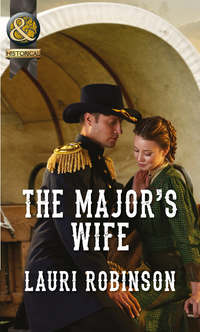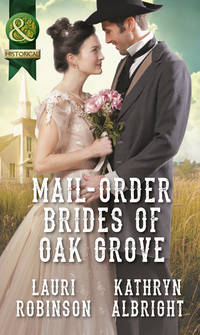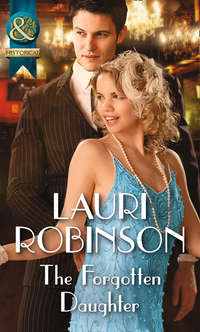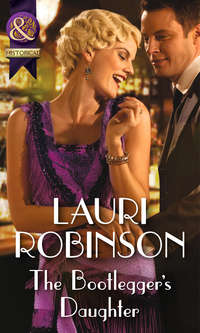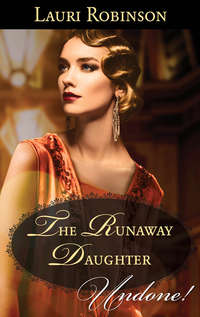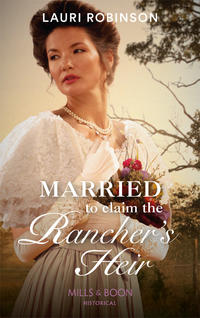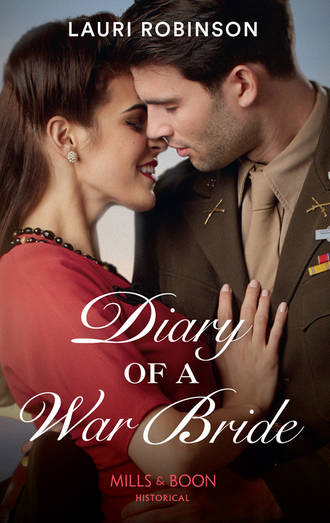
Полная версия
Diary Of A War Bride
Oscar shook his head. ‘Not enough to make a dent in what you need at the base, but you can always come here. We don’t have to abide by the ration portions for you.’
‘We’ll remember that,’ Dale said.
The brother, Ed, who was as stocky and dark haired as Oscar, but also sported a thick moustache, carried two steaming cups out of the back room and set them on the table while saying, ‘Nice to see you boys. We got plenty of coffee, so hope you’ll visit regularly.’
The cups were white and the coffee so weak Dale could see the bottom of the cup. The exact opposite of his father’s. ‘Thanks,’ he said. ‘Smells great.’
Evidently mid-afternoon was a slow time for the pub. He and Sanders were the only two customers and Ed and Oscar sat down at the table next to them. By the time his coffee cup was empty, Dale knew the girl’s name and where she lived. He also knew what he had to do.
After paying for their coffee, he and Sanders climbed back in the Jeep and once again, as they approached the road to the base, he told Sanders to drive past.
‘We going to that woman’s place now?’ Sanders asked.
Dale grasped the top of the windscreen as the rough road jostled the Jeep about. Once the ride smoothed out, he replied, ‘Yes, and we’re going to pay her for the eggs.’
‘Why? We didn’t break them on purpose.’
‘No, we didn’t, but we are going to pay her just the same,’ Dale answered. ‘Watch for a road to the right, we’ll need to take it.’
* * *
It turned out to be several miles from the pub to the small house Dale presumed was where Kathryn Harris lived. Like many others, the base of the house was made of stones and the rest wood. The siding went vertical instead of horizontal, which made the two-storey home look taller than it was. There was also a barn and several separate fenced-in areas that housed chickens, rabbits and a large garden. The pen near the barn held a couple of cows and goats. All in all, the site gave him his first real bout of homesickness. Until enlisting, he’d rarely left the farm. Unlike his brother, Ralph, he’d never had a hankering to go elsewhere. Also unlike Ralph, he let his parents know where he was. Another reason he had to make things right with this girl. If headquarters learned about it, they could put a stop to his search for Ralph. His mother had already lost one child. His sister, Judy, had died from dust pneumonia before the war had even started and he’d promised his father that Mother would not lose another one. Not him or Ralph.
‘This it?’
‘Yes,’ Dale answered, recognising the bicycle leaning against the barn. ‘Pull up next to the house.’
An older, slightly stooped man with a mop of dull grey hair walked out the door before Sanders had cut the engine.
‘Hello!’ the man shouted. ‘Welcome!’
Dale climbed out of the Jeep and walked to the gate, where he waited for the man to walk to the end of the cobblestone walkway.
‘Norman Harris,’ the man said, holding out one hand while opening the gate with the other. His round face looked jovial and one eye squinted as he talked.
Dale shook the man’s hand. ‘Dale Johnson and this is Rusty Sanders.’ He purposefully left off their ranks. Their uniforms would let the man know they were American GIs.
‘Good to meet you,’ Norman said as he shook Rusty’s hand. ‘You part of those boys buzzing overhead all the time?’
‘Yes, sir, we are,’ Dale said. ‘And we’re here to apologise for startling your daughter earlier. We hope she’s all right.’
The one eye Norman had open took on a sparkle. ‘Kathryn’s a good girl. Quick to anger, but she gets over it just as fast.’ Lowering his voice, he added, ‘It’s the planes. They frighten her, but don’t tell her I told you that.’
Dale had already heard how the planes frightened the locals and chose not to respond to that. ‘I understand the incident caused a loss for your family,’ he said, pulling his wallet out of his back pocket. ‘I would like to reimburse you.’
‘Oh, no, no.’ Norman shook his head. ‘That’s not necessary. It was the muddy road. That’s all.’
The house door opened, and though Norman might have suggested that Kathryn got over her anger quickly, the way she marched down the steps said that hadn’t happened today.
Keeping one eye on her, Dale took out several bills. ‘I still feel responsible.’
‘No. No. My wife is putting together a basket that I will drive to the pub. Should have done that in the first place. The bicycle doesn’t do well in mud.’ Glancing over his shoulder, Norman smiled. ‘Kathryn, these men came to apologise for the mishap. Wasn’t that nice of them?’
Her glare said otherwise and grew in intensity when she settled it on him.
Turning back to the man, Dale said, ‘I fully understand the loss of food, the loss of income, and insist upon paying you.’ He once again held the bills out towards Norman. ‘I’m not familiar with the prices here, so if this isn’t enough, just say what is.’
Norman took the bills and counted them. ‘This is far too much.’
Her animosity became even clearer as she watched Norman shuffle the bills. ‘We cannot take your money. Will not.’
‘Because it’s American?’ he asked. ‘I’m sure any bank will—’
‘No,’ she interrupted, squaring her tiny shoulders. ‘Because we all are doing our part in this war and will manage just fine without your assistance.’
He doubted that. ‘I insist.’
‘So do I,’ she said.
For as tiny as she was, the fury in those brown eyes could fall trees.
‘Kathryn—’
‘Good day, gentlemen,’ she said, interrupting Norman. Then with a sideways nod, she said, ‘Give him his money back. Please.’
There was an odd plea in her eyes, one the old man recognised because he handed over the bills. ‘Thank you for stopping by and for the apology.’
Chapter Two
28th of April, 1942
Dear Diary,
London had been struck again. Buildings I’ve known my entire life are no longer standing, the beautiful city I called home is becoming little more than rubble. Norman received word from Father that he and Mother are safe, our home remains undamaged. I’m relieved to know that, but so very saddened by all that continues to happen.
I dare say the Americans have yet to help us save the day and I’m not holding my breath. Especially after meeting one. They are dreadful. Nearly hit me with an aeroplane. Yes, an aeroplane. They are arrogant, too, and far too handsome for their own good. They think all they need is a smile and a wallet full of money.
I’m proud to say they did not fool me with either. Andrew taught me a lesson that I will never forget. Of course, I didn’t realise that at the time. The war was just beginning then and I thought he wanted to marry me because he loved me, not because he thought marrying me would save him from serving. Mother was right in that sense, that he only wanted to marry me because of who Father is. I may not have before, but I now see the wisdom in her words. If I had married Andrew, I might have been living in one of the buildings that are now little more than rubble back in London. What I do know for certain is that I would never have met Charlotte and Norman and all the wonderful children in their care. I would never have discovered how much I truly enjoy taking care of the children. Of course, I knew nothing about that when I first arrived here. I knew nothing about so many things when I first arrived here, but I do now and I can say with certainty that I will never be fooled again. Not by a handsome smile or a uniform.
Kathryn’s nerves had been frazzled since the bicycle accident, but hearing the older boys, George and Edward, bickering as they walked up the road flared a bout of anger inside her. As did the buzz rumbling the skies. The boys had made a contest out of naming the American bomber planes and tallying the number of times they’d seen each one.
The children no longer grabbed their gas masks and ran for the bomb shelter built in the back garden every time they heard a plane—instead, they ran outside unafraid, looking up to see if they could see a pilot.
That was dangerous. There was no other word for it. From the onset of the war, children had been taught to hide from the planes, take shelter, that the rumbling of those large metal birds meant danger.
It still did. Even the American ones. As she’d discovered.
Pulling off her gloves, she left the front garden, making sure the gate was closed tightly, and walked down the cobblestone pathway to open the back garden gate for the children. There was no front garden left to speak of. With everyone doing their part, what had been the front garden now housed rows of vegetables. Having just been planted a short time ago, the green sprouts were tiny and hardly recognisable, but soon there would be potatoes, carrots, cauliflower, parsnips and a few other vegetables that could survive the daily rains and dreary skies of spring. It felt as if it had been years since the sun had shone bright and freely. Almost as if even the weather realised it was wartime.
‘Kathryn! Look what we have!’ Phillip said, holding something in his hand. ‘It’s sweets! Chewing gum! I have a piece for you, too.’
The youngest of the boys, Phillip ran towards her, his smile showing the opening left from losing a tooth last week. Despite her melancholy, she couldn’t help but smile.
‘Chewing gum? Who gave you that?’ Sweets of any sort were rare and the smile on all of the faces approaching the gate said Phillip wasn’t the only one with a prize.
There were nine children in total who lived with Norman and Charlotte and her. Each one as unique and adorable as the next and each an evacuee who had arrived at some point over the past two years. She’d been the first, arriving nearly three years before at the age of seventeen. Her father had delivered her himself. As an intelligence officer, Father hadn’t said if the bombing starts, he’d said when it starts, and he’d wanted her as far away from London as possible. Her mum had agreed, except for the faraway part. They’d settled for Norman’s small farm, little more than an hour outside London.
Since then scores of young people had been evacuated out of the city. And continued to be, finding a temporary and hopefully safe refuge from the war.
‘No,’ Little George said, arriving a step behind Phillip. They called him Little George because George was already here when Little George had arrived on the same evacuee train as Phillip, Patricia and Doreen. ‘A soldier gave it to us.’
A shiver raced up Kathryn’s spine. ‘A soldier?’
‘The one you met,’ Edward said.
‘Yes.’ Phillip thrust a wrapped stick of chewing gum towards her. ‘He gave me this one for you.’
‘He said his name was Sergeant Dale Johnson,’ Elizabeth said as she followed in the older boy’s wake.
Kathryn’s nerves stung. She didn’t want a name to put to the face that haunted her, and her fingers wrapped tighter around the gloves in her hand.
‘I bet he flies one of the planes we see every day,’ George said. ‘The one with the blue nose.’
‘No, he flies the one with the red nose,’ Edward disagreed. ‘I’ve seen the pilot in that one.’
‘You have not,’ George argued.
‘Have to!’ Edward said.
‘Boys,’ Kathryn said, putting a stop to their bickering. There was plenty more she’d like to say, but Elizabeth was handing over an envelope.
‘Besides the gum he gave Phillip for you, he asked me to give you this note.’ Elizabeth then asked, ‘Why didn’t you mention meeting him?’
‘Because it wasn’t worth mentioning,’ Kathryn said, taking the envelope, which burned her fingers at the thought of who’d touched it previously. ‘Go inside and have your tea, then complete your studies.’
‘We don’t have any evening studies,’ Elizabeth said. ‘The soldiers were at school all afternoon, talking to all the children about not going near any pieces of shrapnel, and if we see any, we are to report it right away. I have a letter to give to Charlotte and Norman about it.’
‘Is that what this is?’ Kathryn asked, ignoring a sense of disappointment.
‘I don’t think so,’ Elizabeth answered. ‘Sergeant Johnson asked the teacher which children lived with you and then asked if he could give me that note. That’s when he told me he’d met you.’
‘Run on in and have your tea,’ Kathryn said, turning the envelope over to see her name typed on the front.
‘Don’t you want your gum?’ Phillip asked, following the others through the open gate.
One extra piece was sure to cause a squabble, so she took it. ‘Thank you. Run inside now.’
Kathryn waited until each child passed through the front door, then she looked down at the envelope again. She didn’t want to be curious, but was. After slipping her gloves and the stick of gum in her pocket, she carefully slid a finger beneath the flap to release the seal and pulled out a single sheet of paper.
It was typed. She’d never received a typed letter before.
Dear Miss Harris,
The United States Air Force is presenting you with the enclosed payment for the loss of supplies resulting from a motor vehicle and bicycle incident on the High Wycombe Roadway during the mid-afternoon of April 27th, 1942.
She unfolded the bottom of the letter and trapped the money against the paper with her thumb while reading the rest of the letter.
If you have any questions, please contact Marilyn Miller, secretary for the United States Army Eighth Air Force South Hill Barracks.
Kathryn flipped the paper over, looking for...she wasn’t exactly sure what. Frowning, she turned it over again. The letter was signed by Marilyn Miller. Whoever that was.
Ire rippled her insides as she counted the money. It was the same amount Dale Johnson had attempted to give Norman, but had been converted into shillings and pence. American or English, she would not be keeping this money.
‘I really think you should let me drive you,’ Norman said a few minutes later while walking towards the barn beside her.
‘There’s no need to waste the petrol,’ Kathryn said. He and Charlotte were worried about the soldiers being in trouble for the mishap. She wasn’t. Her concern was more personal. Sergeant Johnson would not get his way. Not with her.
‘But after—’
‘I’ll be far more careful,’ she interrupted Norman’s response. Feeling guilty about being so discourteous, she added, ‘The letter is addressed to me, so I will to be the one to respond.’
* * *
‘Johnson,’ Sam Smith shouted from the doorway. ‘You got a visitor!’
Dale wiped his crescent wrench clean and placed it in the metal box among his other tools before tossing the rag aside and walking towards the doorway.
‘You’re getting to be awfully popular among the Janes.’ Smith wiggled both of his brush-black eyebrows. ‘The secretary this morning and now a local girl.’
Dale grinned. He’d expected a reaction from the letter he’d had Marilyn type up for him, but hadn’t thought it would be this quick. ‘Jealous?’
Smith laughed. ‘You know it.’
Dale slapped the other man’s shoulder as he walked out the door. ‘Get used to it, buddy.’
Laughing again, Smith nodded towards the concrete slab outside the main building. ‘Say hi for me, will you?’
‘Not on your life,’ Dale replied as he readjusted his hat.
Her bicycle was standing next to the bench she sat upon, back straight and hands folded in her lap. The base was a busy place, with men meandering in all directions, and every one of them was taking a second look at Kathryn. He couldn’t blame them. She was a looker, even with the red scarf hiding her shiny, thick black hair. He’d seen that hair flowing long and loose when she’d pulled a different scarf off her head after taking her tumble. She had on the same shoes as that day and sheer stockings. Riding a bike in those heels had to be close to impossible.
As he walked passed a group of GIs standing stationary longer than necessary, he waved an arm. ‘Move on, boys. You’re here to fight Germans, not dally with the locals.’
‘Ah, Sarge,’ one of them said. ‘We ain’t seen a German since we got here.’
‘You will,’ he said. ‘Now move along.’
They followed orders, heading in the opposite direction as him. A few steps later, he removed his hat prior to stopping in front of the metal bench. ‘Miss Harris.’
She lifted her chin as she stood and smoothed her knee-length, sandy-brown coat with one hand while holding out the other one. ‘I’m here to return this.’
That wasn’t the reaction he’d been hoping for.
Ironically the sun, which hadn’t let itself be known very often since he’d arrived, chose that moment to peek out from behind a sky full of grey clouds. ‘Would you care to take a walk?’ he asked, ignoring the envelope. The Major hadn’t learned about the incident and, if Dale had his way, Hilts never would.
Her brows knit together as she barely turned her head while glancing left and right. ‘A walk?’
‘I’ve been told there’s a garden around the east side of the building, with a walking pathway the entire length.’
‘I’m not here to—’
‘I know.’ He wasn’t one to act impulsively, but convincing her to keep the money would take a bit of finesse. Something that didn’t come to him naturally. He’d have to work on it. And her. ‘Just a short walk. I’ve wanted to see the garden but haven’t had a reason to walk over there yet.’
She glanced around, this time turning her head fully in each direction. When she faced him again, he wasn’t daft enough to think she nodded because of his charm. It was the dozens of other men looking their way.
‘I don’t have much time,’ she said while taking a step.
‘Neither do I,’ he said. ‘But a walk doesn’t need to take long.’
‘As I said, I’m here to return your money.’
‘It’s not my money.’ That wasn’t completely a lie. The money he’d given Marilyn to include with the letter had been American. The secretary had been the one to exchange it for local currency. So far, only he, Sanders and Marilyn knew exactly what had happened and he wanted to keep it that way. ‘I’m a farmer, Miss Harris. Or was until I became a soldier. My folks own a farm in North Dakota. Gathering eggs was my first chore. At least the first one I can remember.’ The memories floating back made him grin. ‘That and hauling wood, but my brother, Ralph, usually did that. He hated chickens and would haul my share of the wood if I gathered his share of the eggs.’
He bit the tip of his tongue to stop from sharing other things about himself. She didn’t need to hear his life story, nor want to. ‘What I meant to say is that I know how tough farming can be. How the loss of even a single egg is felt. Even more now that the world is at war.’
They’d rounded the building corner and rows of leafy green bushes, some he might have recognised if he took the time to look closer, edged the walking path on both sides.
‘I can’t deny the world is at war, Mr Johnson,’ she said smartly. ‘But I can assure you, we do not need your money. Norman and Charlotte would not have taken in so many if they did not have the means to provide for them.’
He’d heard about children being evacuated out of London and assumed some of the children living with her were part of that. Of the nine, only two looked similar, as if they might be siblings. ‘Are they all evacuees?’
‘Yes.’
Something in her tone, a sadness, had him asking, ‘But not you.’
She glanced his way, frowning slightly. ‘Yes, me, too.’
‘Then how do you have the same last name as Norman. Mr Harris?’
‘I don’t.’
Not one to usually make assumptions, he searched his mind to recall if one of the Fowler brothers had said she was Norman’s daughter. He’d been certain they had. Ed had. He was fairly sure of that.
‘You assumed I was Norman and Charlotte’s daughter,’ she said, with her heels snapping against the stone walkway. ‘Just as you assumed we needed to be repaid for the food that was damaged in the mishap. Both assumptions were wrong.’ She stopped walking and held out her hand containing the envelope. ‘Now if you’d kindly take this, I shall be on my way.’
He ignored the envelope again. ‘If it’s not Harris, what is your last name?’
She frowned slightly, then shook her head. ‘I don’t see how that matters one way or the other.’
‘It does to me.’ He couldn’t come up with a solid reason why, so he waved a hand at the trail continuing in front of them. ‘It’s just as far to walk all the way around as it is to go back the way we came.’ With a shrug, he added, ‘And once I know your last name, I won’t have to assume again.’
When it appeared she might not agree, he added an incentive, ‘The sun is shining, Kathryn, I hear that’s a rarity this time of year.’
‘Winslow,’ she said. ‘Miss Winslow.’
He’d figured using her first name would goad her into telling him. ‘Winslow. Kathryn Winslow. Well, that’s a fine name, Miss Winslow,’ he said while slowly starting to walk again. ‘A mighty fine name. Nothing to be ashamed of.’
‘Ashamed of?’ She hurried to catch up with him. ‘I’m not ashamed of it.’
‘You’re not?’ He gave his head a thoughtful shake. ‘Well, I assumed since you didn’t want to tell me that—’
‘You said if I told you, you wouldn’t assume again.’
He nodded. ‘I did, didn’t I? Well, then, how about the sun? How often does it shine? Just so I don’t have to assume again.’
Her sideways glance said he wasn’t fooling her, but the hint of a smile she tried to hide gave him hope.
‘It shines often enough, but not as much as it rains. Some people don’t like our weather. They say it’s too dreary. To rainy.’
He almost asked who, but figured that could be two steps backwards. ‘I love rain.’
‘You do?’ There was a hint of disappointment in her voice.
‘Back home we had a drought that lasted almost ten years. The worst of it was when I was fifteen. By then, we’d gone so long without rain, it wouldn’t have taken much to dry up every last pond. It was so hot the leaves baked right on the trees. Dried up and fell off so it looked like December rather than July. Except for the heat. Nothing could grow and with no plants or moisture to hold the dirt down, it blew everywhere. We had curtains like you do, nailed to the window frames, but they weren’t to keep the light from getting out, it was to keep the dirt from getting in.’
Remembering those days had the ability to clog his throat. The windy dry weather was what had given Judy dust pneumonia. ‘I prayed so long and hard for rain, that, even now, almost ten years later, I still love it. Will love rain for as long as I live.’
‘How did you survive?’ she asked. ‘Your family. Being farmers.’
‘We were lucky in some ways,’ he said. ‘There’s a fair-sized lake that’s spring fed on our property. That year we thought it might dry up, but it didn’t so we had water for the animals and some crops.’ There was a row of tiny purple flowers beside the path and he stopped long enough to pluck one and hand it to her. ‘Much like you, we shared what we could with others. Any neighbour who had a way to haul water was welcome to do so.’
She took the flower and sniffed it while twirling the tiny stem between her finger and thumb. ‘That was kind of you.’
Some didn’t think so. They’d claimed his family should be hauling water to those who didn’t have a way to get it. His family couldn’t have afforded to do that any more than the next. And they’d had other things happening. Judy dying. Letting that thought go, he asked, ‘What kind of flower is that?’
‘It’s a columbine.’
‘Do they grow wild here?’
‘Yes. When I first arrived here, I dug up several that were growing among the hedgerows at Charlotte and Norman’s and gave them to my mum to plant in the flower beds at our house in London.’
She pinched her lips together then and started walking again, obviously not happy about sharing even that little memory with him. Accepting that, he took the subject off her.




